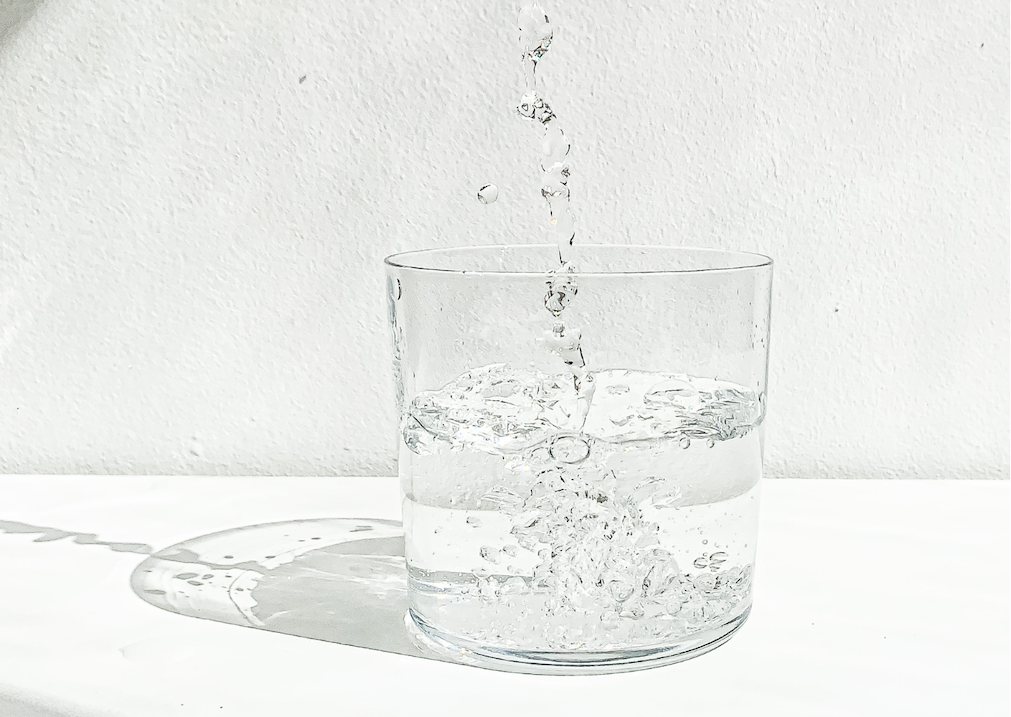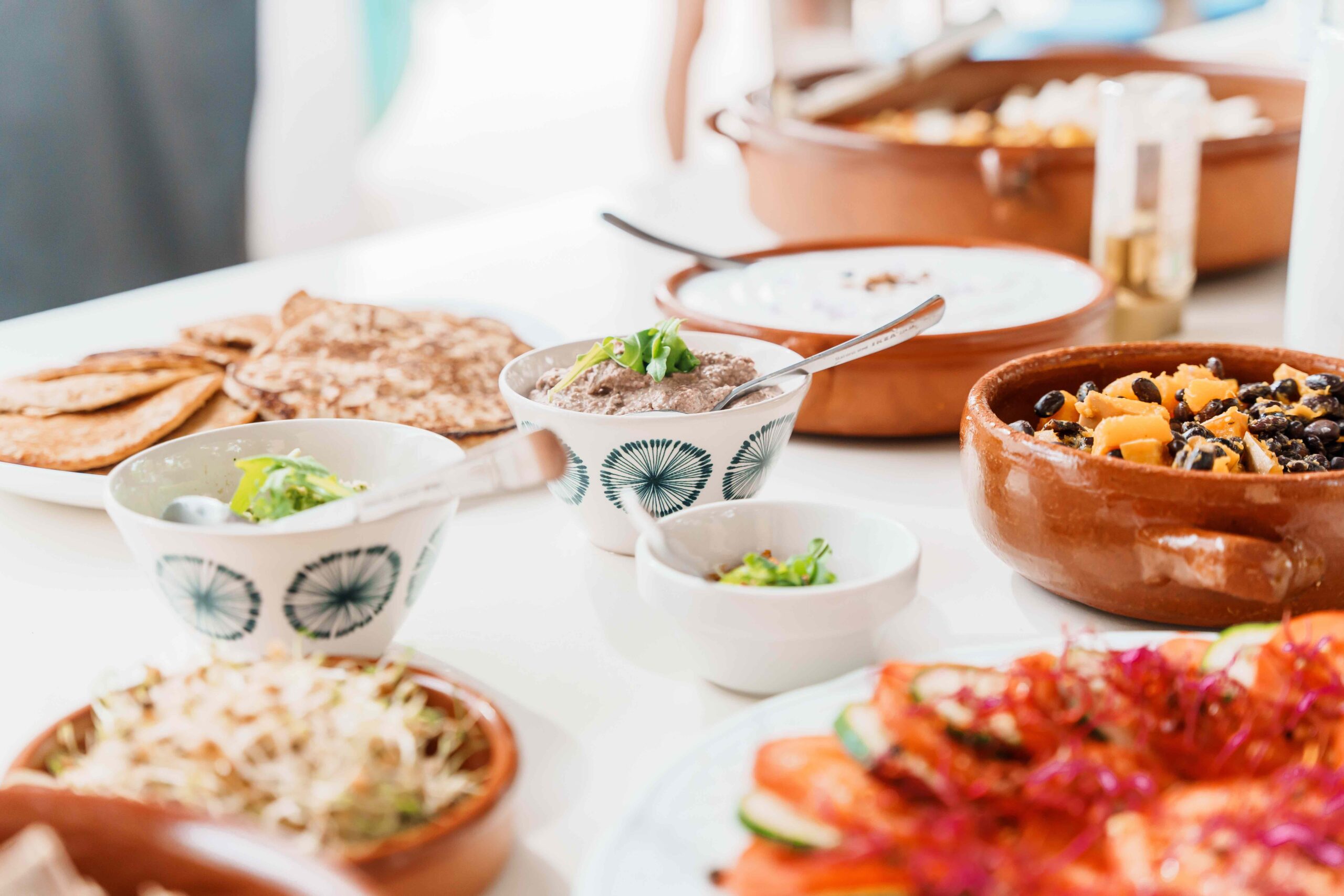Image by: Kelsey Curtis
3 Zutaten für glutenfreie Humus-Pasta-Soße -
Die Top Proteinquelle
Hummus - Benefits und wie man eine cremige Hummus-Pasta Sauce zubereitet
Auch wenn der Kühlschrank einmal leer ist und die Küche auch sonst nicht all zu viel hergibt, findet man doch oft einige Standardsachen wie (glutenfreie) Pasta, Humus, Senf, Weißwein, Brühe, Pasta, Wasser oder alternative Milch
(5 Milchalternativen im Test).
Humus ist für uns der perfekte Dip für ungefähr alles. Darüber hinaus, dass wir ihn uns aus unserem Leben nicht mehr wegdenken können, ist er voll an langlebigkeitsfördernden Nährstoffen, die unseren Körper mit weit mehr als nur Proteinen versorgen. Wer Humus schon für alles verwendet hat und immer noch nicht genug hat, für den haben wir noch eine leckere Möglichkeit. Glutenfreie Pasta mit cremiger, proteinreicher Humus Soße.
Dieses Rezept eignet sich für gemütliche Fernsehabende, Meal Prep für den nächsten Tag oder als schnelle Lunch Idee. Es ist ein schnell zubereitet, unglaublich lecker und darüber hinaus Soul Food in gesund.
Humus – die Top Proteinquelle
HUMMUS UND SEINE GESUNDEN NÄHRSTOFFE
Humus ist ein Fertigprodukt, das wir euch ausnahmsweise einmal empfehlen können. Denn die Zutaten, die in einem gutem Humus enthalten sind, machen ihn nicht nur zu einer Top Protein- und Ballbaustoffquelle, die für deinen Zellen und deinen Darm wichtig sind, sondern auch, zu einem kleinen Nährstoffwunder. Neben Kichererbsen enthält er Olivenöl, Knoblauch, Zitrone, Tahini, Kreuzkümmel und Salz. Jede der Komponenten hat wundervolle Nährstoffe, die deinen Körper in seiner Langlebigkeit unterstützen.
Kichererbsen sollten nicht nur auf ihren Proteingehalt reduziert werden. Denn auch sie enthalten weit mehr und sind reich an Vitaminen und Mineralien wie:
- Vitamin A: wichtig für ein funktionierendes Immunsystem, starke Knochen und die Augen
Vitamin B1: wichtig für Erhaltung von Nerven- und Herzmuskelgewebe - Vitamin B6: Ist Cofaktor für mehr als 100 Enzyme und an sehr vielen Prozessen des Eiweiß- und Fettstoffwechsels beteiligt. Es ist essentiell für das Immunsystem, das Nervensystem und für die Bildung von Hämoglobin.
- Vitamin C: Ist ein starkes Antioxidans und unterstützt die Zellerneuerung der Haut.
Vitamin E: Hält die Haut länger jung und schützt die Zellen vor oxidativen Schäden. - Eisen: Wichtig für den Transport der roten Blutkörperchen
- Zink, Kupfer, Mangan: Stärkt die Thymusdrüse, die Immunabwehr und dass Wunden schneller heilen.
- Magnesium: Gehört zu den entzündungshemmendsten Mineralstoffe und spielt eine wichtige Rolle für Herz, Muskeln und Nerven
- Selen: Schütz die Zellen, stärkt die Immunabwehr und ist beteiligt an der Produktion des Schilddrüsenhormons und von Spermien.
Neben all den eigenen wertvollen Nährstoffen haben Olivenöl, Knoblauch und Zitronensaft Eigenschaften, die zum Zellschutz sie deren Auf- und Abbau beitragen. Besonders Knoblauch hat einen erhaltenden Effekt auf unserer Thymusdrüse, welche das Zentrum unserer Immunabwehr ist.
Tahin ist auch etwas, was in jede Küche gehört. Nicht nur, dass man mit ihr unendlich viele Gerichte verfeinern kann, sie ist auch reich an B1, B2 und B6, enthält viel Magnesium, Kalium, Eisen, Kupfer, Zink und Phosphor und etwas Calcium. Tahini ist damit der perfekte Begleiter für die Kichererbsen und ebenfalls einen Top Proteinquelle.
glutenfreie Humus-Pasta-Soße
Image by: Maryam Sicard
Zubereitung
- Pasta kochen (eventuell etwas Wasser auffangen)
- Humus, Senf, Salz und Flüssigkeit dazu geben
- alles miteinander vermengen, bis es schön cremig ist
- Optional: Mit Pfeffer und Kräutern würzen
Tipp
Das Rezept bietet dir eine Grundbasis. Du kannst dich hier ganz nach dem, was du zu Hause hast ausleben und die Humus Pasta mit frischen Kräutern, Zitrone, Pfeffer, getrockneten Tomaten oder gerösteten Pinenekernen verfeinern. Schau einfach, was du da hast.




















